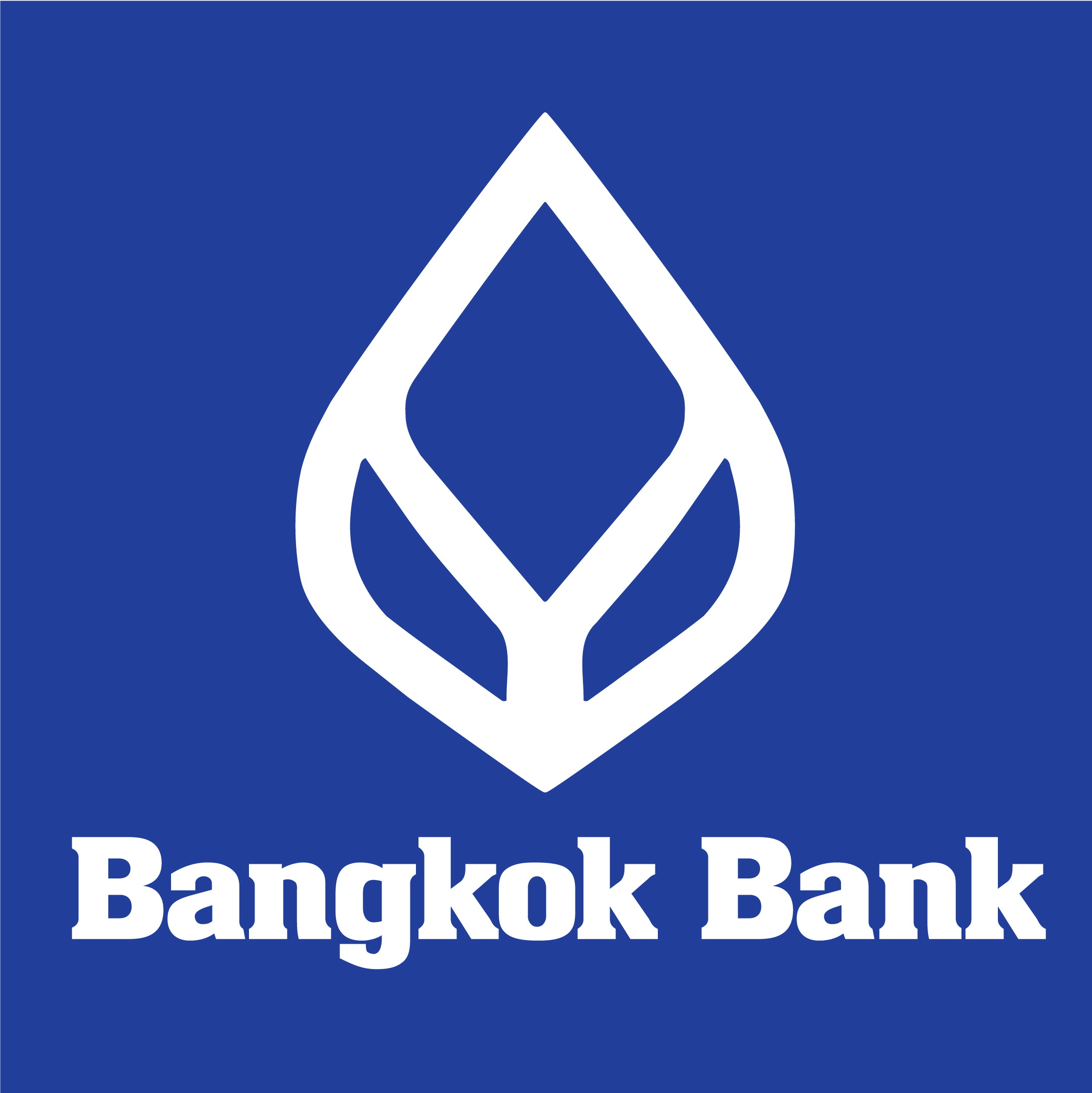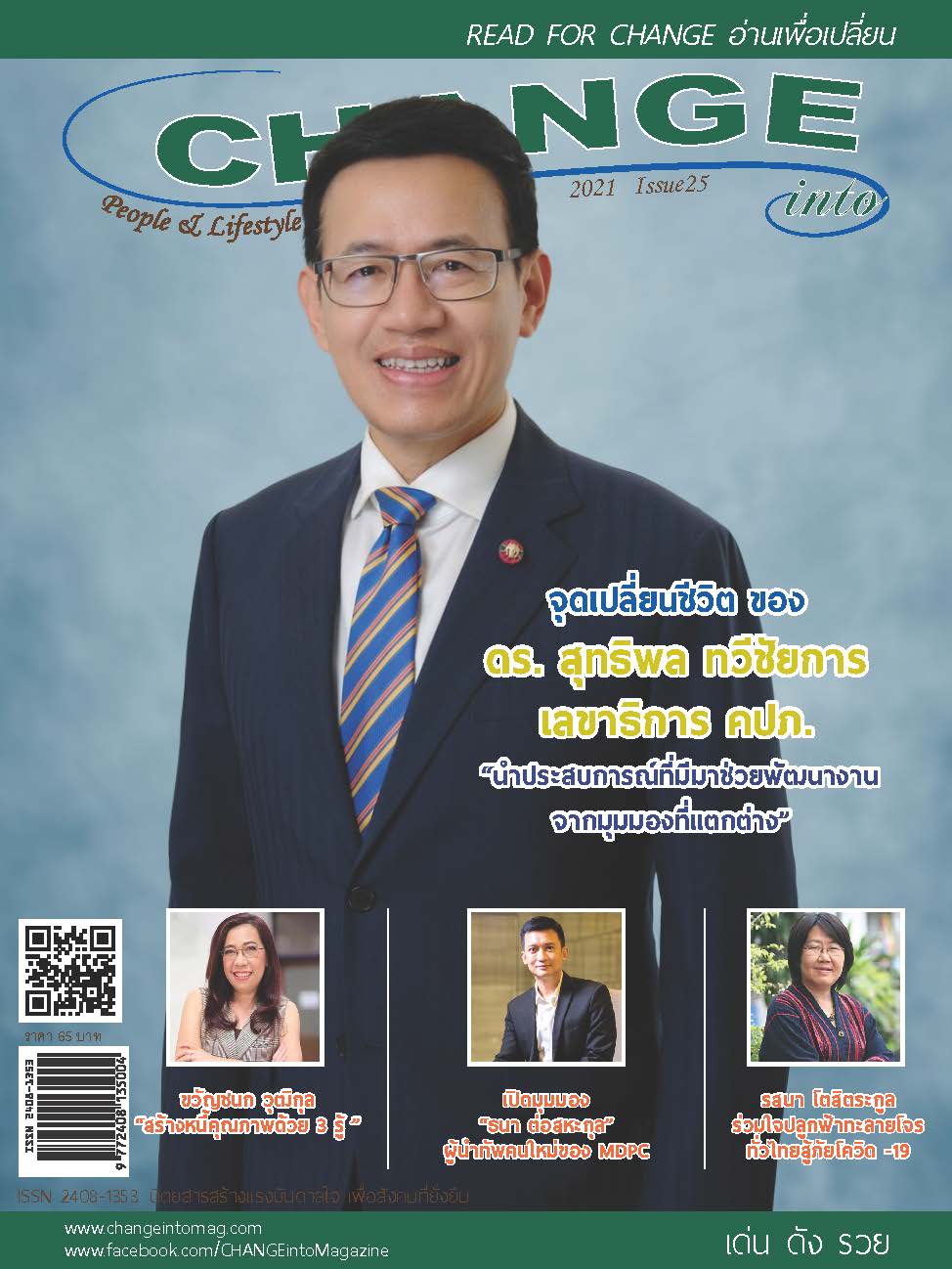ธนาคารกรุงเทพรายงานกำไรสุทธิครึ่งแรกปี 2563 จำนวน 10,765 ล้านบาท

ธนาคารกรุงเทพรายงานกำไรสุทธิครึ่งแรกปี 2563 จำนวน 10,765 ล้านบาท
ในครึ่งแรกของปี 2563 เศรษฐกิจไทยหดตัวอย่างหนักจากผลกระทบของมาตรการป้องกันการแพร่ระบาดของโรคติดเชื้อไวรัสโคโรนา สายพันธุ์ใหม่ 2019 (โควิด-19) มาตรการปิดเมืองทั่วโลกและมาตรการจำกัดการเดินทางระหว่างประเทศ เป็นผลให้จำนวนนักท่องเที่ยวหดตัวอย่างหนัก ประกอบกับการส่งออกและการนำเข้าสินค้าของไทยลดลงตามความต้องการของประเทศคู่ค้าที่อ่อนแอ ส่งผลให้กิจกรรมทางเศรษฐกิจภายในประเทศลดลงตามไปด้วย การบริโภคภาคเอกชนลดลงอย่างมากจากยอดขายรถยนต์ที่ลดลง และการหยุดชะงักของกิจกรรมภาคบริการ การผลิตภาคอุตสาหกรรมและการลงทุนหดตัวจากความต้องการที่ลดลงทั้งในและต่างประเทศ อย่างไรก็ดี การใช้จ่ายและการลงทุนภาครัฐขยายตัวจากการเร่งเบิกจ่ายเพื่อกระตุ้นเศรษฐกิจในปีนี้
นับตั้งแต่เกิดการแพร่ระบาดของโควิด-19 ก่อให้เกิดผลกระทบเชิงลบทางเศรษฐกิจต่อประชาชนและผู้ประกอบการในหลายภาค รัฐบาลและธนาคารแห่งประเทศไทย (ธปท.) จึงได้ออกมาตรการต่าง ๆ เพื่อผ่อนคลายผลกระทบดังกล่าวมาเป็นลำดับ ในการนี้ธนาคารกรุงเทพได้ร่วมสนับสนุนนโยบายของภาครัฐและธนาคารแห่งประเทศไทยโดยเร่งออกมาตรการช่วยเหลือลูกค้าธุรกิจ อาทิ การสนับสนุนวงเงินสินเชื่อเพิ่มเติม การพักชำระหนี้ และออกมาตรการช่วยเหลือลูกค้ารายย่อยโดยปรับลดอัตราผ่อนชำระขั้นต่ำ เพิ่มวงเงิน รวมทั้งปรับลดอัตราดอกเบี้ยเป็นการทั่วไปสำหรับทั้งลูกค้าธุรกิจและลูกค้ารายย่อย ด้วยความเข้าใจถึงสถานการณ์ที่ผู้ประกอบการและประชาชนยังคงเผชิญอยู่ ธนาคารกรุงเทพมีความมุ่งมั่นพร้อมเป็น “เพื่อนคู่คิด” ที่จะประคับประคองให้ลูกค้าผู้ประกอบการและประชาชนสามารถผ่านช่วงวิกฤตนี้ไปได้ ด้วยการให้คำปรึกษาและความช่วยเหลือลูกค้าให้มีเงินทุนและสภาพคล่องเพียงพอ เพื่อเสริมศักยภาพในการรับมือกับผลกระทบจากสถานการณ์การแพร่ระบาดของโควิด-19 นอกจากนี้ ธนาคารมีความห่วงใยในสวัสดิภาพและความปลอดภัยของลูกค้า พนักงาน และประชาชนเป็นสำคัญ โดยได้ดำเนินการตามมาตรฐานด้านสุขอนามัยเพื่อร่วมป้องกันและควบคุมการแพร่ระบาดของโรคโควิด-19 อย่างเคร่งครัด และพร้อมเคียงข้างในการเป็นเพื่อนคู่คิดเพื่อก้าวผ่านวิกฤตนี้ไปด้วยกัน
ธนาคารกรุงเทพต้อนรับธนาคารเพอร์มาตาเข้าสู่ครอบครัวเสร็จสมบูรณ์ในเดือนพฤษภาคม 2563
เมื่อวันที่ 20 พฤษภาคม 2563 ธนาคารกรุงเทพได้เข้าถือหุ้นธนาคารเพอร์มาตาในประเทศอินโดนีเซียที่ร้อยละ 89.12 เสร็จสมบูรณ์ นับเป็นสมาชิกใหม่ในกลุ่มธุรกิจการเงินของธนาคารกรุงเทพที่จะเสริมสร้างศักยภาพการให้บริการด้านการเงินเพื่อตอบสนองความต้องการของลูกค้าในการดำเนินธุรกิจในภูมิภาคอาเซียนได้ดียิ่งขึ้น ซึ่งการดำเนินการในครั้งนี้สอดคล้องกับกลยุทธ์ของธนาคารในการเสริมสร้างรากฐานเพื่อการเติบโตอย่างมั่นคงและยั่งยืน สำหรับงบการเงินรวมของธนาคารกรุงเทพและบริษัทย่อยในครึ่งแรกของปี 2563 ได้รวมผลประกอบการของธนาคารเพอร์มาตาตั้งแต่วันที่ธนาคารเข้าถือหุ้น โดยธนาคารเพอร์มาตามีสินทรัพย์ ณ สิ้นเดือนมิถุนายน 2563 จำนวน 336,964 ล้านบาท และหนี้สินจำนวน 285,022 ล้านบาท คิดเป็นร้อยละ 9 ของสินทรัพย์รวม และร้อยละ 8 ของหนี้สินรวมของธนาคาร
ท่ามกลางภาวะเศรษฐกิจหดตัวอย่างหนักทั่วโลกและความไม่แน่นอนของเศรษฐกิจไทยในระยะข้างหน้าจากผลกระทบของสถานการณ์โควิด-19 ธนาคารกรุงเทพยังคงยึดมั่นแนวทางในการดำเนินธุรกิจด้วยความรอบคอบและระมัดระวัง ควบคู่กับการดำรงฐานะการเงินและเงินกองทุนของธนาคารอยู่ในระดับที่แข็งแกร่ง เพื่อรักษาเสถียรภาพทางการเงินที่ยั่งยืนพร้อมก้าวเข้าสู่บริบทใหม่ของการดำเนินชีวิต (New Normal)
ณ สิ้นเดือนมิถุนายน 2563 ธนาคารมีเงินให้สินเชื่อจำนวน 2,353,848 ล้านบาท เพิ่มขึ้นร้อยละ 14.2 จากสิ้นปี 2562 หากไม่รวมธนาคารเพอร์มาตา เงินให้สินเชื่อเพิ่มขึ้นร้อยละ 3.4 จากสินเชื่อธุรกิจ ซึ่งเป็นไปตามประมาณการสินเชื่อที่คาดไว้ตั้งแต่ปลายปีก่อน สำหรับอัตราส่วนเงินให้สินเชื่อที่มีการด้อยค่าด้านเครดิตต่อเงินให้สินเชื่อรวมอยู่ที่ร้อยละ 4.1 ขณะที่อัตราส่วนค่าเผื่อผลขาดทุนด้านเครดิตต่อเงินให้สินเชื่อรวมที่มีการด้อยค่าด้านเครดิตอยู่ที่ร้อยละ 170.5 ทั้งนี้ ธนาคารยังคงอยู่เคียงข้างและดูแลลูกค้าอย่างใกล้ชิดเพื่อฝ่าวิกฤตเศรษฐกิจและก้าวเข้าสู่บริบทใหม่ของการดำเนินชีวิต (New Normal) พร้อมทั้งให้ความสำคัญในการดูแลกระบวนการอำนวยสินเชื่อและบริหารความเสี่ยง ควบคู่กับการดำรงค่าเผื่อผลขาดทุนด้านเครดิตให้อยู่ในระดับที่เหมาะสม ซึ่งเป็นไปตามแนวทางการดำเนินธุรกิจด้วยความระมัดระวังทั้งในภาวะเศรษฐกิจปกติและภาวะถดถอย
ด้านเงินกองทุนและสภาพคล่อง ณ วันที่ 30 มิถุนายน 2563 ธนาคารมีเงินรับฝากจำนวน 2,852,295 ล้านบาท เพิ่มขึ้นร้อยละ 20.3 จากสิ้นปี 2562 หากไม่รวมธนาคารเพอร์มาตา เงินรับฝากเพิ่มขึ้นร้อยละ 8.9 จากเงินรับฝากทุกประเภท จากการที่ลูกค้ามุ่งเน้นการบริหารสินทรัพย์โดยเน้นกลยุทธ์เชิงคุณภาพ สำหรับอัตราส่วนเงินให้สินเชื่อต่อเงินรับฝากอยู่ที่ร้อยละ 82.5 สะท้อนถึงสภาพคล่องที่เพียงพอรองรับความไม่แน่นอนทางเศรษฐกิจ ขณะที่อัตราส่วนเงินกองทุนทั้งสิ้น อัตราส่วนเงินกองทุนชั้นที่ 1 ที่เป็นส่วนของเจ้าของ และอัตราส่วนเงินกองทุนชั้นที่ 1 ต่อสินทรัพย์เสี่ยงของธนาคารและบริษัทย่อยอยู่ที่ร้อยละ 16.6 ร้อยละ 14.0 และร้อยละ 14.0 ตามลำดับ ซึ่งอยู่ในระดับที่สูงกว่าอัตราส่วนเงินกองทุนขั้นต่ำตามที่ธนาคารแห่งประเทศไทยกำหนด
กำไรสุทธิของธนาคารกรุงเทพและบริษัทย่อย ในครึ่งแรกของปี 2563 มีจำนวน 10,765 ล้านบาท
ธนาคารกรุงเทพและบริษัทย่อยรายงานกำไรสุทธิครึ่งแรกของปี 2563 จำนวน 10,765 ล้านบาท ซึ่งได้รวมผลประกอบการของธนาคารเพอร์มาตาตั้งแต่วันที่ธนาคารเข้าถือหุ้น โดยกำไรสุทธิลดลงจากครึ่งแรกของปี 2562 เนื่องจากธนาคารมีการตั้งผลขาดทุนด้านเครดิตที่คาดว่าจะเกิดขึ้นเพิ่มขึ้นเป็นพิเศษ เพื่อกันเงินสำรองสำหรับความไม่แน่นอนที่อาจเพิ่มขึ้นจากเศรษฐกิจที่หดตัวจากผลกระทบของสถานการณ์โควิด-19 ซึ่งการคาดการณ์วิกฤตในครั้งนี้ยังยากที่จะคาดคะเนเพราะเป็นวิกฤตด้านสาธารณสุขที่ส่งผลกระทบกว้างไกลต่อระบบเศรษฐกิจโลกไม่ใช่วิกฤตเศรษฐกิจโดยตรงเหมือนที่ผ่านมาในอดีต
สำหรับรายได้ดอกเบี้ยสุทธิของธนาคารเพิ่มขึ้นร้อยละ 5.6 หากไม่รวมธนาคารเพอร์มาตา รายได้ดอกเบี้ยสุทธิเพิ่มขึ้นร้อยละ 1.8 ตามการเติบโตของสินเชื่อ ขณะที่ส่วนต่างอัตราดอกเบี้ยสุทธิของธนาคารอยู่ที่ร้อยละ 2.31 สำหรับรายได้ที่มิใช่ดอกเบี้ยลดลงส่วนใหญ่จากกำไรสุทธิจากเงินลงทุน และรายได้ค่าธรรมเนียมและบริการสุทธิลดลง สาเหตุหลักจากการเปลี่ยนแปลงการรับรู้รายได้ค่าธรรมเนียมที่เกี่ยวกับการให้สินเชื่อตาม TFRS 9 สำหรับค่าใช้จ่ายจากการดำเนินงานอยู่ในระดับใกล้เคียงกับครึ่งแรกของปี 2562 โดยมีอัตราส่วนค่าใช้จ่ายต่อรายได้จากการดำเนินงานอยู่ที่ร้อยละ 45.0 โดยธนาคารยังคงดูแลค่าใช้จ่ายอย่างมีวินัย เน้นการใช้จ่ายที่ช่วยเสริมสร้างความปลอดภัยด้านสาธารณสุข รวมถึงการดำเนินการปรับปรุงระบบงานให้มีประสิทธิภาพดีขึ้น และชะลอการใช้จ่ายที่ยังไม่จำเป็นในช่วงภาวะซบเซา
การนำมาตรฐานกลุ่มเครื่องมือทางการเงินฉบับใหม่มาถือปฏิบัติ
ธนาคารและบริษัทย่อยได้นำมาตรฐานกลุ่มเครื่องมือทางการเงินฉบับใหม่ (ฉบับที่ 9) มาถือปฏิบัติกับงบการเงินสำหรับรอบระยะเวลาบัญชีตั้งแต่วันที่ 1 มกราคม 2563 เป็นต้นไป โดยไม่ปรับงบการเงินเปรียบเทียบย้อนหลัง การเปลี่ยนแปลงที่สำคัญ ได้แก่ การจัดประเภทและการวัดมูลค่าสินทรัพย์และหนี้สินทางการเงิน การคำนวณการด้อยค่าของสินทรัพย์ทางการเงินโดยใช้ผลขาดทุนด้านเครดิตที่คาดว่าจะเกิดขึ้น (Expected Credit Loss) การบัญชีป้องกันความเสี่ยง และการรับรู้รายได้ดอกเบี้ยเงินให้สินเชื่อโดยใช้อัตราดอกเบี้ยที่แท้จริง (Effective Interest Rate: EIR)
Bangkok Bank reportsnet profit of Baht 10,765 million
for the first half of 2020
In the first half of 2020, the Thai economy declined sharply due to the impact of the containment measures to combat the coronavirus (Covid-19) pandemic, global lockdown measures, and international travel restrictions which led to the collapse of tourist arrivals. Thai exports and imports slumped on weak demand from trading partners, which also dampened domestic economic activity. Private consumption plummeted with a sharp drop in car sales and disruption to service activities. Manufacturing production and investment contracted in line with the drop in external and internal demand. Nevertheless, government spending and investment rose as the government accelerated disbursements to stimulate the economy.
Since the outbreak of the Covid-19 pandemic, which has had an adverse economic effect on individuals and businesses across various sectors, the government and the Bank of Thailand (BOT) have launched a series of financial and fiscal relief measures to help businesses and individuals to get through the crisis. The Bank has supported the government and the BOT policies by promptly issuing measures to assist business customers such as additional credit lines and loan holidays, and to help retail customers by lowering minimum payment rates and extending credit limits. The Bank also lowered interest rates for both business and retail customers. Aware of the difficulties facing businesses and individuals, the Bank is committed to be a “puen koo kit” (trusted partner) by looking after and assisting customers, so they have sufficient funds and liquidity to recover from the pandemic. Moreover, the Bank prioritizes health, hygiene and the wellbeing of customers, employees and the public, and has strictly implemented safety and protection standards to prevent and control the spread of the Covid-19. The Bank is a trusted partner supporting everyone to get through this crisis together.
Bangkok Bank welcomed Permata into its financial group in May 2020
On May 20, 2020 Bangkok Bank completed the acquisition of its 89.12 percent shareholding in PT Bank Permata Tbk (Permata) in Indonesia. Permata is now the newest member of Bangkok Bank's financial group and will enhance the capability of the Bank to meet customers’ needs in operating their businesses in ASEAN. The acquisition was in accordance with the Bank’s strategy to strengthen its foundations for stability and sustainable growth. The consolidated financial statements of Bangkok Bank and its subsidiaries in the first half of 2020 include the performance of Permata since the completion of the acquisition. Permata’s total assets and liabilities as of June 30, 2020 amounted to Baht 336,964 million and Baht 285,022 million, respectively, which accounted for 9 percent of the Bank’s total assets and 8 percent of the Bank’s total liabilities.
Amid the severe global economic downturn and uncertain prospects of the Thai economy due to the impact of the Covid-19 pandemic, Bangkok Bank continued its prudent approach toward business management while maintaining a strong financial status and capital reserves to support financial sustainability and to move forward to the “New Normal”.
At the end of June 2020, the Bank’s loans amounted to Baht 2,353,848 million, an increase of 14.2 percent from the end of 2019. When excluding Permata, loans grew by 3.4 percent from increases in loans to businesses in line with the projection late last year. The ratio of non-performing loan (NPL) to total loans was 4.1 percent. The ratio of loan loss reserves to NPL was 170.5 percent. The Bank continues to work closely side by side and take good care of customers to help them withstand the economic crisis and move forward to the “New Normal”, while maintaining close control of credit underwriting and risk management. The Bank also set aside an appropriate level of expected credit loss in accordance with its conservative business management approach across business cycle.
In terms of capital and liquidity, as of June 30, 2020, the Bank’s total deposits amounted to Baht 2,852,295 million, an increase of 20.3 percent from the end of 2019. When excluding Permata, total deposits increased by 8.9 percent from all types of deposits. This is due to customers’ focus on quality in their asset management. The loan to deposit ratio was 82.5 percent, reflecting an adequate liquidity position to cushion against economic uncertainties. The total capital adequacy ratio, Common Equity Tier 1 capital adequacy ratio and Tier 1 capital adequacy ratio of the Bank and its subsidiaries were 16.6 percent, 14.0 percent, and 14.0 percent respectively, comfortably above the BOT’s minimum capital requirements.
Bangkok Bank and its subsidiaries reported net profit of Baht 10,765 million for the first half of 2020
In the first half of 2020, Bangkok Bank and its subsidiaries reported a net profit of Baht 10,765 million including Permata’s net profit since the date the acquisition was completed. The Bank’s net profit decreased from the first half of 2019, primarily due to additional reserve made for expected credit losses in line with prudent management. The reserves are to provide a cushion against the increasing uncertainty from the economic contraction due to the impacts from Covid-19 which are still difficult to predict the final outcome given it is a widespread public health crisis affecting the global economics which is different from economic crises happened in the past.
Net interest income increased by 5.6 percent from the first half of last year. When excluding Permata, the Bank’s net interest income increased by 1.8 percent, in line with an increase in loan volume. The net interest margin stood at 2.31 percent. Non-interest income decreased mainly due to lower gains on investments and net fees and service income. The main reason for the decrease in net fees and service income was the change in recognition of fee income from loan-related services in accordance with the TFRS 9. Operating expenses were similar to the first half of 2019, and the cost to income ratio was 45.0 percent. The Bank continues to take a well-disciplined approach for cost management focusing on spending to enhance public health, improve working efficiency, as well as slowdown discretionary spending during the period of economic stagnation.
Implementation of new financial reporting standards (group of financial instruments)
The Bank and its subsidiaries adopted the TFRS 9 from January 1, 2020 onwards, without restating previous financial statements. The principal changes can be summarized into classification and measurement of financial assets and liabilities, calculation of impairment using the concept of expected credit loss, hedge accounting, and the change in recognition of interest income from loans using the effective interest rate (EIR) method.



















